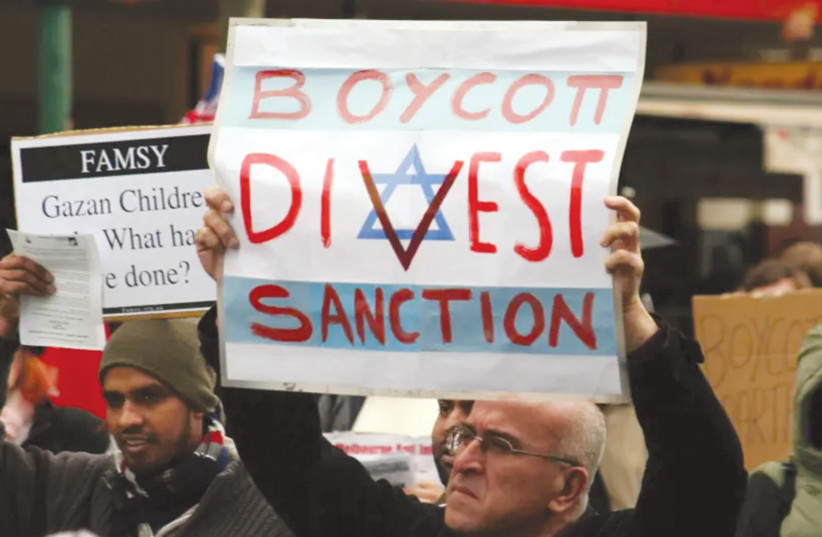One of the bills mentioned in the annual Queen's Speech on May 10 in the name of the British Government was widely understood to have been directed at combating the Boycott, Divest and Sanction (BDS) movement, which promotes civil action against Israel due to its policies towards the Palestinians.
“Legislation will prevent public bodies engaging in boycotts that undermine community cohesion" was one of the final legislative measures announced by Prince Charles in the name of Prime Minister Boris Johnson's government.
Prince Charles read the speech instead of Queen Elizabeth due to her medical condition. It was the first time since 1963 that she did not read the speech herself.
The sentence was referring to a bill that would prohibit public bodies from imposing boycotts on foreign countries or officials that are inconsistent with official UK policy. This includes those who boycott, divest or sanction Israel, according to British media sources.
The idea of the bill was first put forwards in May 2020, when after a four-year legal battle the British Supreme Court struck down a government order with the same intention.

“We are committed to ensuring public bodies take a consistent approach to investments and to stop local boycotts. We will therefore bring back new legislation that addresses the technical points raised by the Supreme Court,” a spokesperson for the UK housing, communities and local government ministry said at the time.
The proposal followed the Conservative Party’s manifesto in last year’s election, which included a commitment to “ban public bodies from imposing their own direct or indirect boycotts, disinvestment or sanctions campaigns against foreign countries.”
British MP and member of Johnson's Conservative Party Robert Jenrick announced in December 2021 that the British government will pass legislation to outlaw the BDS movement in "the coming months."
